May 27, 2025 | 08:54 GMT +7
May 27, 2025 | 08:54 GMT +7
Hotline: 0913.378.918
May 27, 2025 | 08:54 GMT +7
Hotline: 0913.378.918
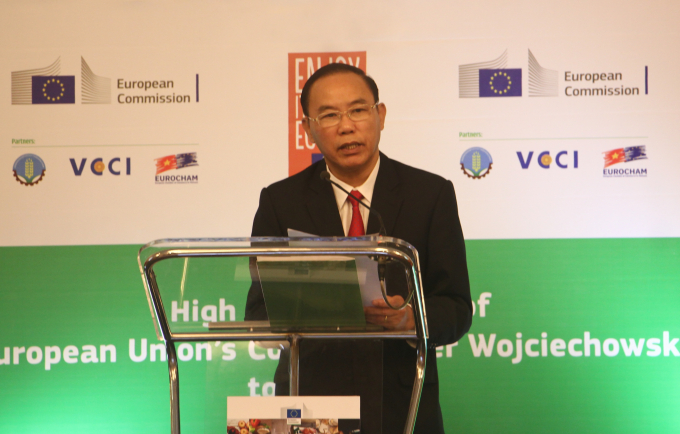
Deputy Minister of Agriculture and Rural Development Phung Duc Tien spoke at the forum. Photo: Linh Linh.
The event was held on the occasion of an official visit to Vietnam by the EU Commissioner for Agriculture Janusz Wojciechowski.
It seeks to offer a foundation for the sharing of business expertise and the promotion of agricultural goods, sustainable production criteria, and potential partnerships between EU and Vietnamese businesses in Southeast Asia.
During his address at the event, EU Commissioner Janusz Wojciechowski expressed his gratitude for the opportunity to lead over 50 leaders of EU businesses and organizations specializing in agriculture and food to Vietnam. Since the signing of the European Union–Vietnam Free Trade Agreement (EVFTA) two years ago, bilateral trade has flourished. Despite the negative impacts of the Covid-19 pandemic, the year 2021 saw the trade turnover reach USD 50 billion.
Mr. Wojciechowski said that the EU anticipated a steady increase in trade and that this agreement would increase the exports of both sides. Through the use of preservation and processing technology, the traditional goods of the two areas might be promoted and traded more effectively.
Two parties will promote free trade and ease the exchange of agriculture and food businesses during the next two years. The EU Commissioner expected that the Vietnamese would welcome EU meat, dairy, vegetables, fruits, wines, and olive oil, among other items, and that Europeans would soon enjoy Vietnamese coffee, pepper, cashew nuts, and tropical fruits.
During this visit, Mr. Wojciechowski hoped to learn about the works of Vietnamese farmers, the production process from farm to table, and the expanding production of organic products in Vietnam.
MARD Minister Phung Duc Tien praised the comprehensive, well-developed, and the in-depth relationship between Vietnam and the EU after 30 years of establishment.
The EVFTA agreement has created several opportunities for collaboration and economic expansion between the two parties. The bilateral agro-forestry-fisheries (AFF) trade expanded from USD 4.3 billion in 2015 to USD 5.2 billion in 2021. This amount reached USD 2.26 billion in the first five months of 2022, an increase of 26 percent year-over-year.
The EU is an important market for Vietnam's exports of coffee, cashew nuts, seafood, and wood and wood products, according to the MARD leader. There is still a great deal of room for the two parties to increase agricultural trade in rice, coffee, processed goods, and items with geographical indications.
In the context of supply chain disruptions, Deputy Minister Phung Duc Tien said that Vietnam actively participates in the global food chain, with rice production capacity reaching 43.86 million tons in 2021 and exports reaching 6.7 million tons.

The EU Commissioner for Agriculture Janusz Wojciechowski. Photo: Linh Linh.
"We believe the EU to be the most important as well as a great, traditional, and potential partner for Vietnamese agricultural products, particularly when the EVFTA comes into effect, hence offering a great opportunity to promote AFF trade. Deputy Minister Phung Duc Tien said that MARD is prepared to collaborate with the EU to streamline trade, guarantee technical standards for international technology, and prevent new trade barriers to enhance AFF commercial activity, so improving the benefits for producers, enterprises, and consumers.
Vietnam also anticipates attracting more FDI projects with a focus on developing ecological agriculture, organic agriculture, especially core technology, training high-quality human resources, etc., large specialized farming areas, AFF processing, increasing the added value of agricultural products, and infrastructure development, trade, and logistics, etc.
Additionally, the head of the Ministry of Agriculture and Rural Development said that it would assist and promote enterprises on both sides and provide favorable conditions for EU investors to make profitable, long-term, and sustainable investments in Vietnam.
At the forum, experts shared about the market situation and commercial opportunities for agricultural products in Vietnam.
According to Mr. Ngo Chung Khanh, deputy head of the Multilateral Trade Policy Department of the Ministry of Industry and Trade (MoIT), since the EVFTA Agreement went into effect on August 1, 2020, it has brought many benefits to Vietnamese and EU businesses in several fields, particularly food trade. Currently, this agreement has facilitated agricultural commerce between the two sides.
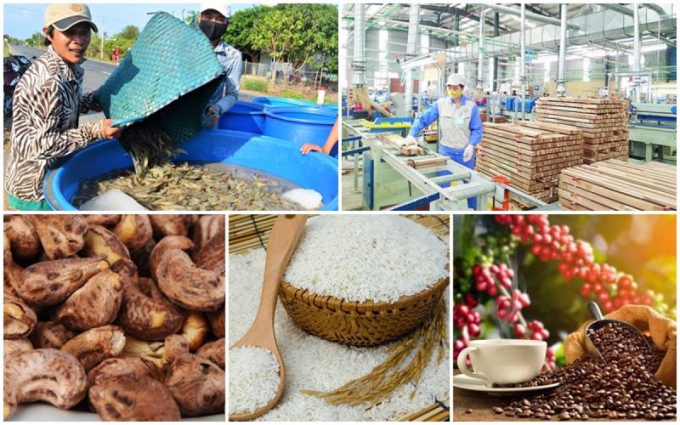
The EU is an important market for Vietnam with export items such as coffee, cashew nuts, seafood, wood, and wood products.
When the tariff is eliminated, more chances and potentials become exposed.
In addition, EVFTA is the first and only agreed to provide protection for geographical indications. Within the scope of this free trade agreement, 39 geographical indications are protected, resulting in greater benefits for farmers, producers, and enterprises. Famous Vietnamese items protected by GIs include Phu Quoc fish sauce, Moc Chau tea, and Doan Hung pomelo among others. In the near future, the expansion of GI protection may be accomplished via negotiations.
In the other direction, the tax line for meat products (chicken, beef, pork); buttermilk, cheese (20-40 percent); rubber; etc. from the EU to Vietnam is greatly decreased and eliminated after 5 to 7 years of the agreement's implementation.
"Vietnam has made a considerable commitment to tariffs for the livestock industry, despite the sensitivity of this sector in the context of free trade agreement negotiations. We have consulted with associations and professionals to come up with a reasonable solution.", said Mr. Khanh.
The tax rate for meat and rubber products has a big difference before and after the agreement is implemented. Thus, EU enterprises that export to Vietnam may take advantage of several advantages and incentives.
To increase market share in Vietnam, EU nations will face intense competition from other countries participating in the CPTPP Agreement and in the region, in addition to the enormous export potential.
Mr. Jean-Jacques Bouflet, vice chairman of EuroCham Vietnam, said that the EVFTA has ushered in a new era for EU-Vietnam trade. In the previous decade, there have been several tariff policies, but with the EVFTA, we may see a significant reduction in tariffs, even to zero percent, over the next few years.
At the event, representatives of Europe and Vietnam discussed information on the market, legal framework, requirements on phytosanitary measures (SPS) for goods, logistics, etc., so that agricultural and food products from Europe may more easily access the Vietnamese market.
Translated by Dieu Linh
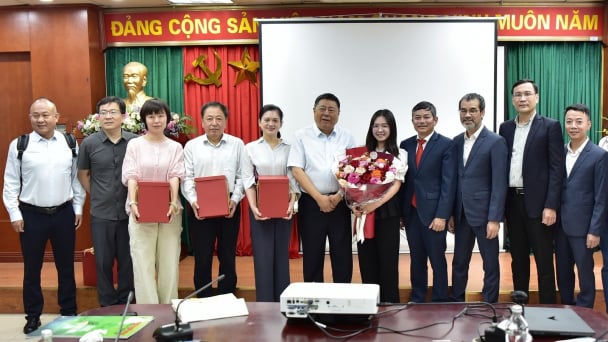
(VAN) The alignment in goals and operational direction between the Vietnam Agriculture and Nature Newspaper and Shaanxi Daily opens up promising prospects for journalism and media cooperation.
/2025/05/26/3422-3-102748_432.jpg)
(VAN) Prime Minister Pham Minh Chinh has been honored as the Distinguished ASEAN Leader at the ASEAN Leadership and Partnership Forum (ALPF) 2025 held in Malaysia, affirming Vietnam’s role and reputation.
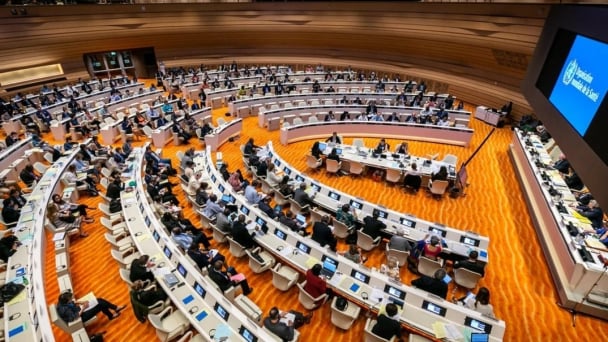
(VAN) At WHA78, with health placed at the heart of the global climate storm, Viet Nam enters a new commitment to protect communities from increasingly severe risks.
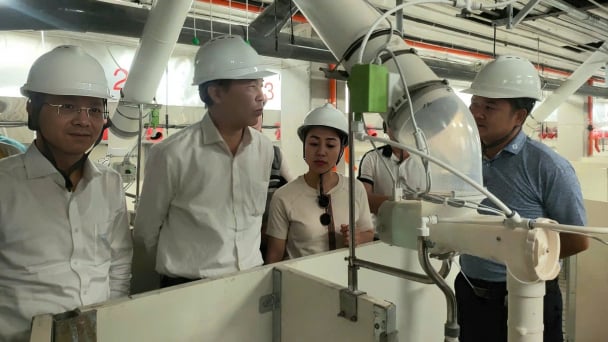
(VAN) Despite investment costs being 1.5 to 1.8 times higher than conventional methods, multi-story pig farming demonstrates outstanding effectiveness, increasing land-use efficiency by 4 to 10 times.
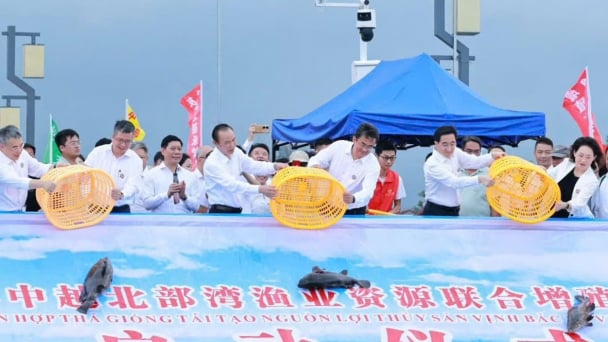
(VAN) Deputy Minister of Agriculture and Environment Phung Duc Tien leads a working delegation to participate in several key activities in China aimed at promoting agricultural and fisheries cooperation.
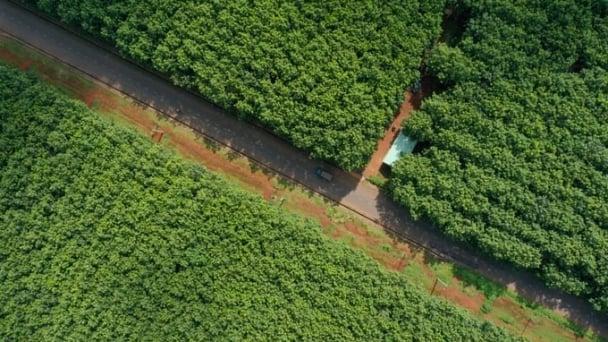
(VAN) The European Commission has just released a list of ‘low-risk’ countries for deforestation, which includes Vietnam.
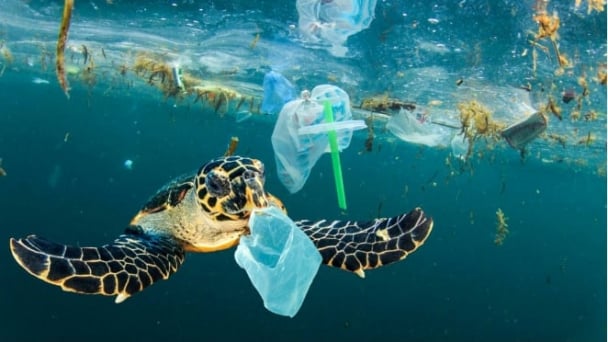
(VAN) The convenience of single-use plastics is leaving lasting consequences for the oceans.